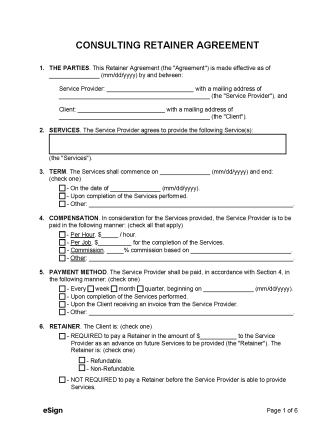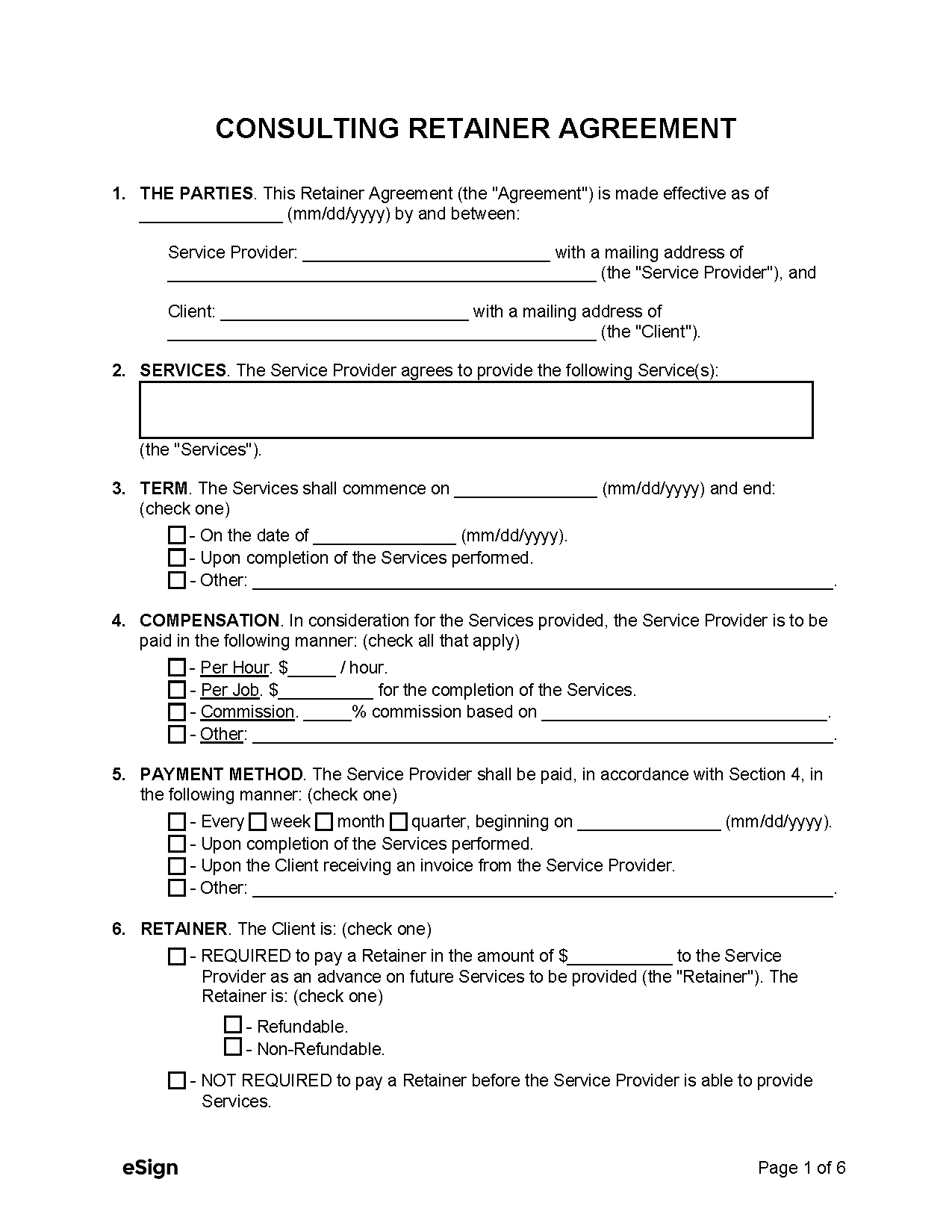How Retainers Work for Consultants
A retainer is an advance payment for the consultant’s services. These fees can be paid periodically and may be refundable or non-refundable. If the consultant’s work exceeds the agreed-upon scope, the client is usually billed for the additional services at the consultant’s standard hourly rate or service fee.
Retainer agreements fall into two categories: “pay-for-work” and “pay-for-access.” The choice of retainer depends on the industry, the parties’ relationship, and the client’s specific needs.
Pay-for-Work Retainers:
- The consultant is paid a retainer for future services or hours (“deliverables”).
- The parties agree on the services or workload expected during each payment term.
- Unused consulting services can roll over, meaning they may be applied to the next pay term.
Pay-for-Access Retainers:
- The client pays for ongoing access to the consultant’s expertise and advice.
- No specific services or set hours are defined in the contract.
- Commonly used by clients with a high level of trust in a consultant’s knowledge and skills.
Sample
Download: PDF, Word (.docx), OpenDocument
CONSULTING RETAINER AGREEMENT
1. THE PARTIES. This Consulting Retainer Agreement (“Agreement”) is made on [DATE] by and between [CONSULTANT’S NAME], with a mailing address of [CONSULTANT’S ADDRESS] (“Consultant”), and [CLIENT’S NAME], with a mailing address of [CLIENT’S ADDRESS] (“Client”).
2. SERVICES. The Consultant agrees to provide the following services to the Client: [DESCRIBE CONSULTANT’S SERVICES/WORKLOAD] (“Services”).
3. COMPENSATION. In consideration for the Services to be provided, the Client agrees to pay the Consultant $[AMOUNT] per [PAYMENT FREQUENCY (E.G., HOUR)].
4. RETAINER. As an advance on future Services to be provided, the Client is required to pay the Consultant a retainer in the amount of $[AMOUNT] every ☐ week ☐ month ☐ quarter, beginning on [DATE] (“Retainer”). The Retainer is: (check one)
☐ – Refundable.
☐ – Non-refundable.
5. NON-DISCLOSURE. The Consultant agrees not to disclose or use the Client’s proprietary or confidential information without prior written consent, except as needed to perform the Services, recognizing that such actions would cause irreparable harm to the Client.
6. EXPENSES. The Client shall be responsible for all expenses related to the Services, except for the following: [LIST EXPENSES TO BE PAID BY CONSULTANT].
7. INDEPENDENT CONTRACTOR STATUS. The Consultant is an independent contractor, and neither the Consultant nor their employees or contract personnel are or shall be deemed the Client’s employees.
8. TERMINATION. Either party may terminate this Agreement upon [#] days’ written notice.
IN WITNESS WHEREOF, the parties have executed this Agreement on the dates indicated below.
Consultant’s Signature: ____________________ Date: [DATE]
[CONSULTANT’S PRINTED NAME]
Client’s Signature: ____________________ Date: [DATE]
[CLIENT’S PRINTED NAME]

